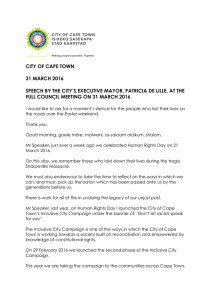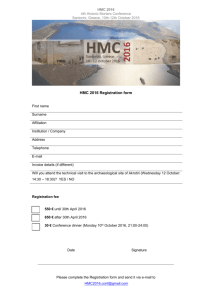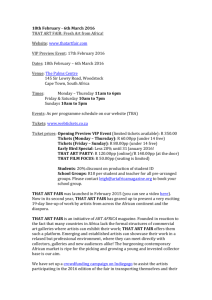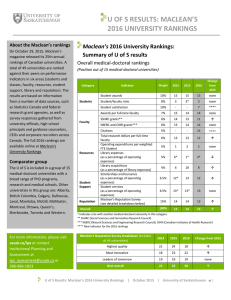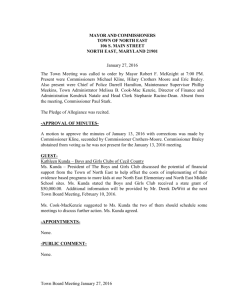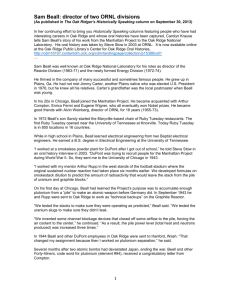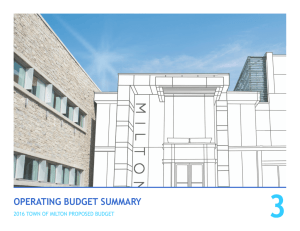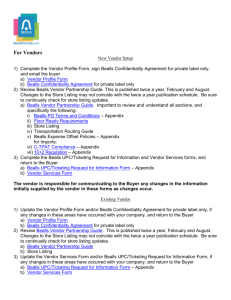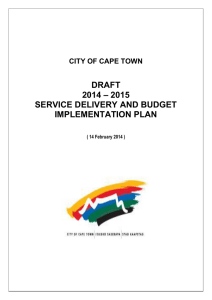Closing remarks from Dr Blade Nzimande, Minister
advertisement
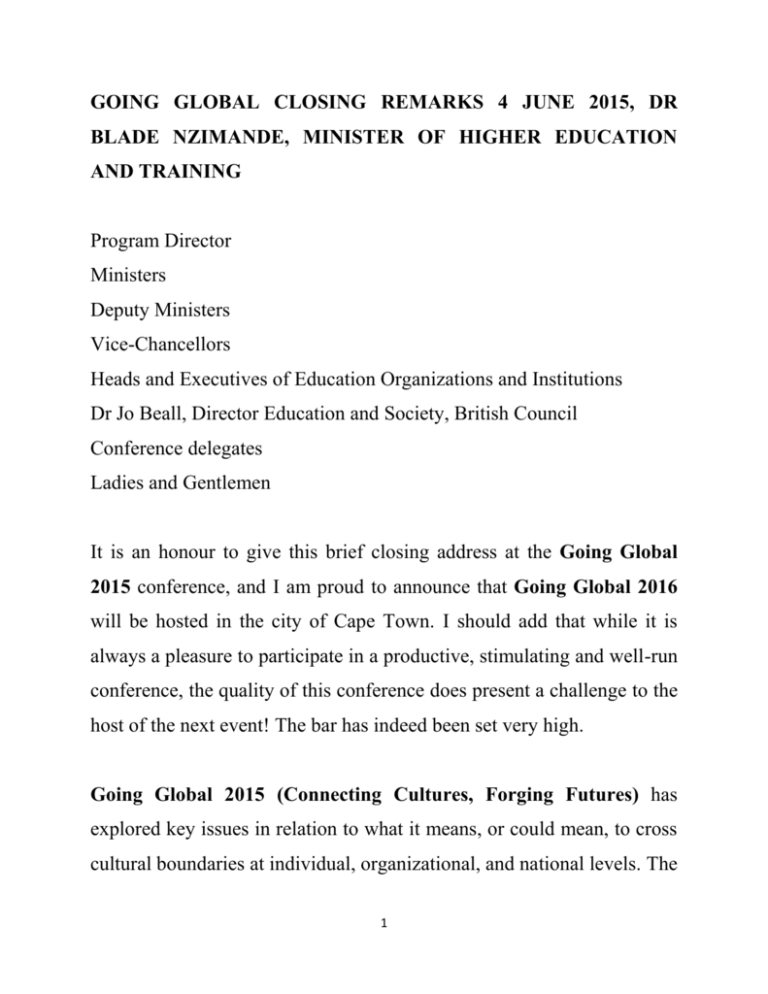
GOING GLOBAL CLOSING REMARKS 4 JUNE 2015, DR BLADE NZIMANDE, MINISTER OF HIGHER EDUCATION AND TRAINING Program Director Ministers Deputy Ministers Vice-Chancellors Heads and Executives of Education Organizations and Institutions Dr Jo Beall, Director Education and Society, British Council Conference delegates Ladies and Gentlemen It is an honour to give this brief closing address at the Going Global 2015 conference, and I am proud to announce that Going Global 2016 will be hosted in the city of Cape Town. I should add that while it is always a pleasure to participate in a productive, stimulating and well-run conference, the quality of this conference does present a challenge to the host of the next event! The bar has indeed been set very high. Going Global 2015 (Connecting Cultures, Forging Futures) has explored key issues in relation to what it means, or could mean, to cross cultural boundaries at individual, organizational, and national levels. The 1 explicit recognition that meaningful collaboration and development in all spheres cannot take place without such important cultural connections having been explored and understood, represents a significant step forward for all of us. These issues will be revisited during Going Global 2016, which highlights in its theme ‘Building nations and connecting cultures through international education’, the role of higher education in building strong, productive and economically viable societies and economies. It is by now widely accepted that modern higher education institutions need to position themselves strategically in national and international contexts. Indeed, the demands of modern economies and societies require higher education institutions to have differentiated missions and mandates that will deliver the complex mix of knowledge and skills required for progress and development. Working against the realization of such mission-driven differentiation, however, are systems of recognition and reward that tend to result in a 2 drive to convergence as institutions strive to compete on the same playing fields, and against the same performance rubrics. Moreover, these systems of recognition and reward, which largely ignore different histories and different resource bases, can - if used thoughtlessly and competitively - impact negatively on important development aims and on the establishment of productively differentiated, locally relevant and globally connected, systems. In undertaking discussions focused on forging meaningful shared futures, it is therefore important to remain vigilant and guard against the inherent unfairness of systems that ignore contextual and resource differences between institutions, rather than valuing their diversity and using these as a platform for building shared values. Going Global 2016 will set out to do just this. It will take as a starting point the challenges posed for international education by the persistence of conflicts, continuing competition between ‘South-South’ / ‘NorthNorth’ / and ‘North-South’ engagements, and by the fact that despite considerable achievements in higher education endeavours in developing countries, few institutions in such contexts are recognized in the top hundreds of global rankings systems. 3 By way of illustration in this regard, Africa has only 6 institutions in the top 100 of the “BRICS and Emerging Economies” rankings, according to the ‘Times Higher Education (THE) 2015’ list. Of these, 5 are in South Africa, and 1 in Morocco1. In the global THE ranking, Africa fares even worse, with only one university, the University of Cape Town at position 124, making it onto the top 200 list. These rankings can be used to create a feeling of despondency amongst policymakers and educationists in Africa, and to confirm negative perceptions of the value and quality of the higher education sector on the continent - on the other hand, if deliberately steered, they can be used to provoke the kinds of discussions that are intended to take place at Going Global 2016. Importantly, the conference in 2016 will also explore the fact that the development of innovative approaches towards ensuring a shared and sustainable future for us all is no longer confined to conventional sites of global research leadership, but emerging across the globe. Recently, several forums have provided time and space for Africa to consider and deliberate on its roles, opportunities and responsibilities in 1 The universities are: the Universities of Cape Town (position 4), the Witwatersrand (14), Stellenbosch (17), and KwaZulu-Natal (47), Marrakech Cadi Ayyad (50), and Pretoria (77). The countries in the list include the BRICS group, as well as Hungary, Turkey, Taiwan, Colombia, Malaysia, Pakistan, Mexico, Thailand, Poland, UAE, and the Czech Republic. 4 this regard: for example, an important summit was held in Dakar, Senegal in March this year to discuss the setting of goals to revitalize Africa’s higher education systems. The time is therefore ripe for us to continue and deepen our understandings of the development of appropriate, constructive and meaningful development targets for universities in the developing world in the context of globalization of education, through engaging constructively with debates and approaches surrounding the ways in which higher education institutions are seeking to develop, gain, and claim international recognition and thereby opportunities for further growth through collaboration. It is clear that at Going Global 2015, important deliberations have begun on these issues, and we look forward to taking these further at Going Global 2016 in Cape Town. In closing, I would like to add to the thanks and acknowledgements given by my colleague Professor Jo Beall to the organisers and participants of this conference, my own thanks to her for bringing the Going Global conference to Africa for the first time in 2016. Professor Beall’s longstanding commitment to Africa, and as a South African born and bred, to South Africa in particular, is well-known, and continues to 5 ensure that she actively includes the continent in international forums and that its considerable contributions to higher education debates and developments are acknowledged. 6


